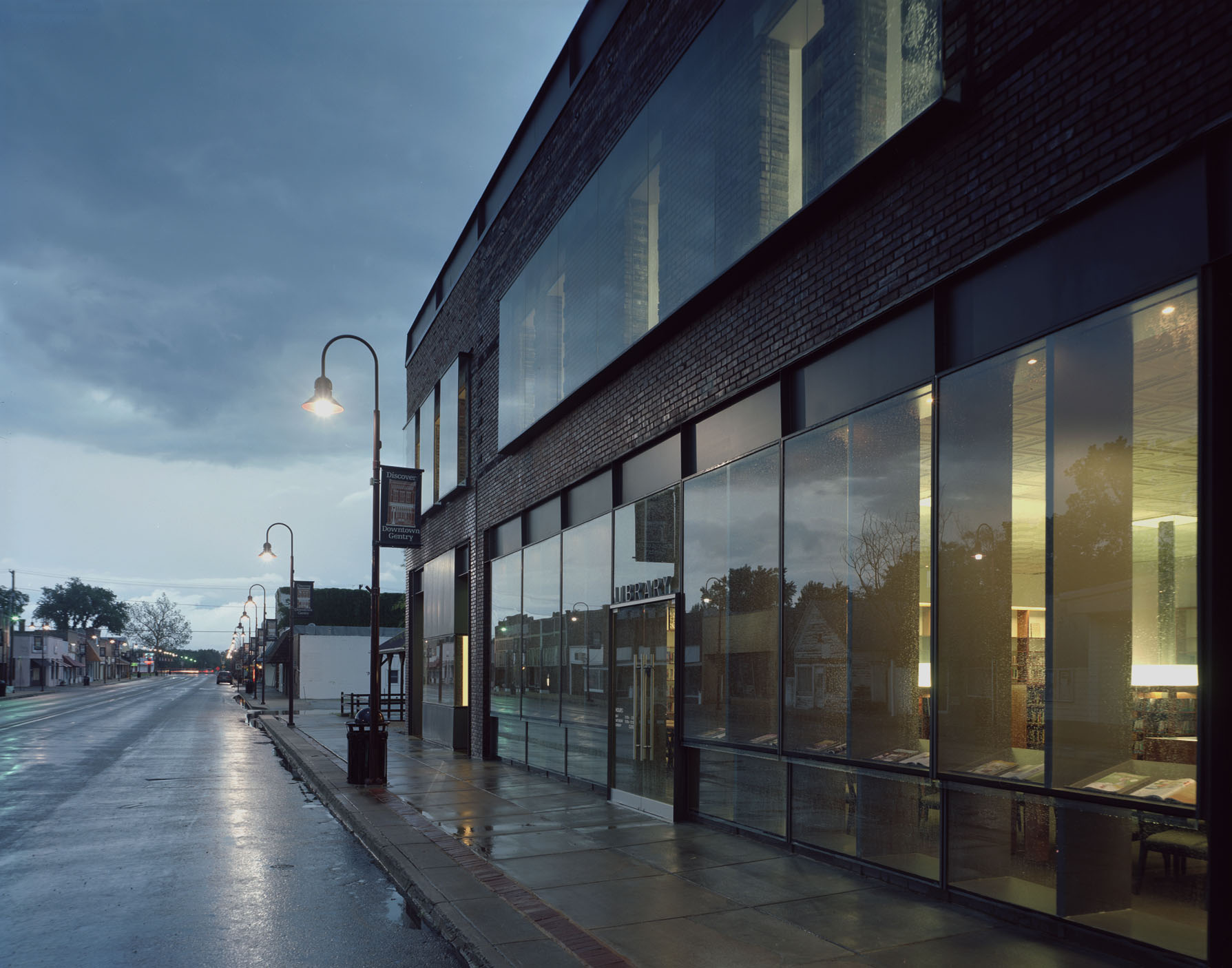
FAYETTEVILLE, Ark. – Two projects by School of Architecture professor Marlon Blackwell are published in the October 2008 issue of Architectural Record, the nation’s premier architecture magazine, which focuses this month on “Design with Conscience.” The Gentry Library, a 100-year-plus former hardware store that Blackwell has transformed into a social linchpin for downtown Gentry, is documented in a six-page article while his Porchdog house, a hurricane-resistant prototype, is included in a round-up article on architectural response to rebuilding the Gulf Coast, post-Katrina.
Though he is best known for residential work and idiosyncratic projects such as the Tower House that rises over Fayetteville’s Old Wire Road, Blackwell has long been interested in reviving buildings burnished with the patina of time and memories.
“I love the idea that architecture is a transformative act – that we can take the architecture of the past and make it an architecture of the present,” Blackwell said. Earlier renovation efforts such as the Cozart and Terminella buildings on East Street and the Fulbright Library building on East Dickson Street, all in Fayetteville, gave Blackwell a working knowledge of the trials and costly surprises that can come with work on historic properties – to the point that he was ready to tear down Gentry’s hardware store and build new after an initial tour.
|
School of Architecture alumnus Stuart Fulbright transformed an adjacent empty lot into a pocket park graced by a pergola for climbing vines and a water sculpture laser cut with excerpts from a poem by Miller Williams. Photo by Timothy Hursley. |
“The building has been compromised over the years by storms and patched together in a haphazard way,” he said. Because the store has been a social and economic hub for the town since it was constructed in 1906, Blackwell decided to press on with the renovation. Due to the tight budget, prison inmates were engaged to strip stained plaster from brick walls and remove, tag and restore pressed metal ceilings, which Blackwell’s staff then repainted at no charge as a gift to the community. A refurbished skylight illuminates refinished heartwood pine floors and built in cherry shelving.
“There’s a nice play between old and new,” he said.
Blackwell responded to the gritty character of the building by installing plate glass vitrines across and beyond window openings on the second story, effectively enshrining the building as a historic artifact. The glass projections showcase historic photographs, vintage clothes and tools and other treasures from the library’s collection. Downstairs, a new glass curtain wall opens the first floor of the library to Gentry’s Main Street, welcoming passersby. Other new features include a community room and plaza to house lectures, book fairs and other events, and a pocket park designed by landscape designer Stuart Fulbright, an alumnus of the School of Architecture.
“This project means as much to me as any other I’ve done,” Blackwell said, “in part because we achieved good design for a minimal amount.” The 11,970-square-foot Gentry library cost $1.2 million, or $108 per square foot, an extremely lean budget for a public project (the new library facilities for Fayetteville and Rogers, for example, ran well over $200 per square foot).
Construction is under way on the Porchdog House, another modestly priced project that Blackwell designed pro bono for Richard Tyler, a housepainter, single father and lifelong resident of Biloxi, Miss. The house is part of Architecture for Humanity’s Biloxi Model Home Project.
“We hope to get the family into their home by early next year,” Blackwell said.
Contacts
,
